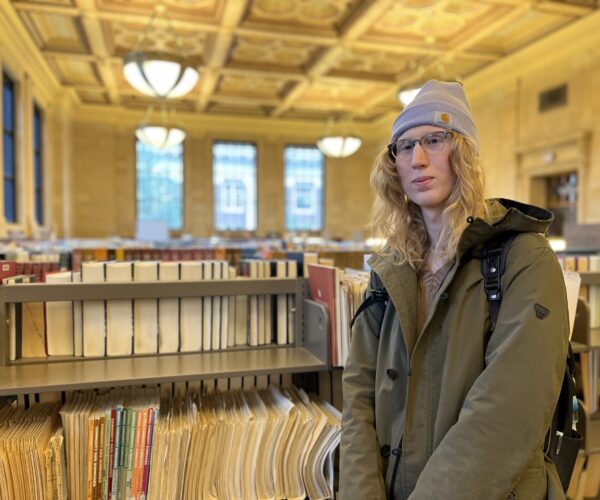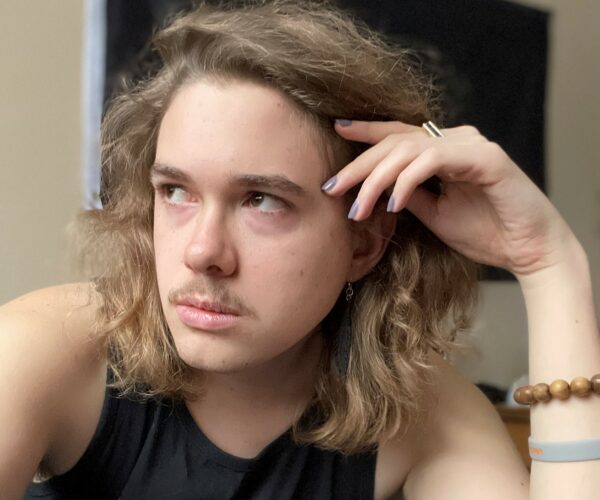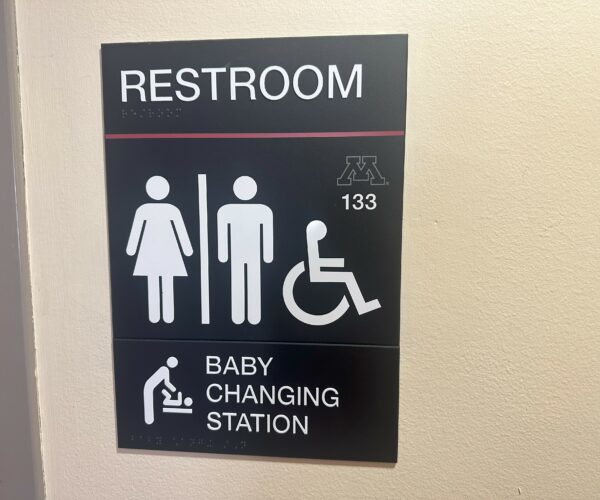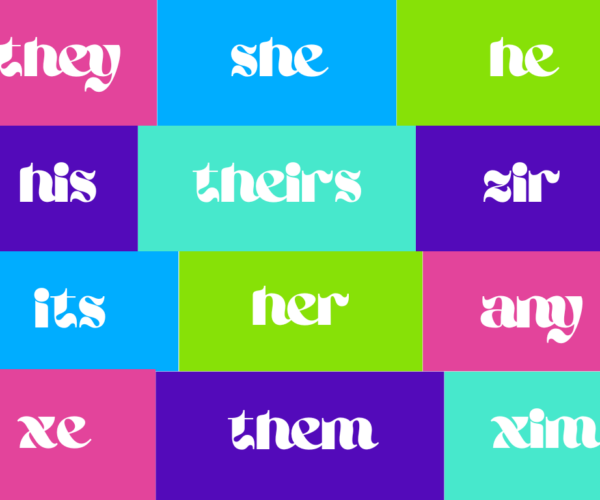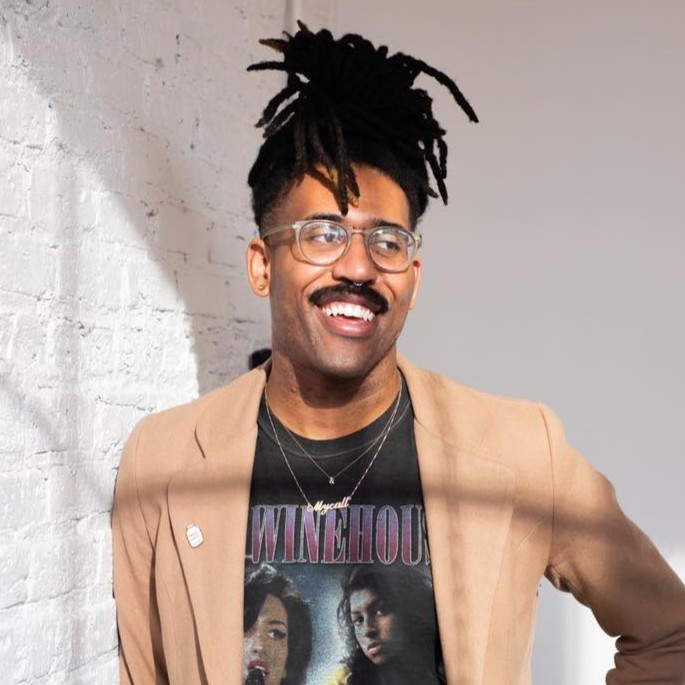By Laura Mokaya
As director of the Office for Equity and Diversity’s Gender and Sexuality Center for Queer and Trans Life (GSC), Mycall Riley said that one of the most rewarding parts of the job is helping queer and gender expansive individuals find a space where they feel they belong.
Riley, who uses any pronouns, including they/them, said their desire to work in student advocacy was sparked as an undergraduate student at Hamline University. Riley was involved with a social change organization that worked closely with the multicultural affairs office.
“I studied sociology and English with a minor in racial studies,” Riley said. “I was really interested in thinking about race and ethnicity, but also a variety of other identities too.”
After graduating, Riley continued doing student advocacy work at Syracuse University in New York, where they oversaw a mentorship program for queer, trans, non-binary and gender expansive students and a support program for Black, brown and Indigenous students.
“They were like, ‘You’re Black, queer and talk a lot. Do you want to facilitate these groups and be assistant director?’” Riley said. “I’ve been connected to LGBT work ever since.”
Before starting at the University of Minnesota in September 2022, Riley worked at DePaul University in Chicago where they started an LGBTQIA+ resource center for students.
Taking on the role
Part of Riley’s position as director of the GSC includes working with the coordinator of the program and the assistant director, as well as supervising a staff of several student workers. The other parts of the job are not as easily defined.
“I’m asked to uplift the mission of the GSC, which is to educate and advocate for those who hold marginalized gender and sexuality. I’m paraphrasing it, but that’s essentially what I get to do,” Riley said. “One of the things I love about this job, and this has been the case particularly at the University of Minnesota, is that you can’t be like ‘What’s today going to look like? What’s an average day look like?’”
One day, Riley may be discussing language issues with another department, and the next day, they might be meeting with a speaker or artist the GSC is inviting to campus.
Although much of Riley’s time is spent working with the GSC staff, they said it is important for them to be able to connect with students.
“A big goal of mine always, as the director, is to still be student facing and still be accessible to students,” they said. “I think, typically, directors and people higher up can be a lot more removed from the folks they’ve been asked to support. I strive to not do that, but again, it’s a work in progress.”
Another of Riley’s goals is to ensure the GSC becomes more well known and accessible to all students on campus, as well as members of the community who are looking for a safe space.
“I want to make sure that all students know that it’s a place they can be and that they can find solace and connection,” Riley said. “I think that it’s really beautiful that we can provide our support for our students in our communities on campus, but a lot of folks looking for support, they exist outside of our campus too.”
Riley hopes to offer support to a variety of people through the resources the GSC offers.
“We’re thinking about undocumented folks, non-traditional students, students who have jobs or children, or students who are coming to get their education on a different journey and a different path,” they said.
Riley wants to prevent these groups from being forgotten . Riley said it is crucial to be as mindful of intersectionality as possible by considering the unique experiences of queer people who are Black, disabled or belong to another marginalized group.
Supporting and uplifting the community
When it comes to supporting marginalized groups, Riley said that while there is always room for improvement, the GSC has made strong efforts.
“I try to make sure that we’re uplifting and putting money back into the pockets of our Black, brown and indigenous queer artists who are in Minneapolis,” they said. “Supporting those poets, artists and muralists — whatever kind of art that they do — is important because so much of the artistic community is connected to our queer communities.”
Though their role is rewarding for them in many ways, Riley said the best part of their job is witnessing the GSC’s spaces facilitate informal, intergenerational conversations. Most recently, Riley recalled a heartwarming moment at a Trans Day of Visibility event hosted by the GSC in March.
“I wasn’t really expecting a lot of people to come by, and I was wrong,” Riley said. “The thing that resonated with me the most was when I looked around the room, and there were several small groups of trans faculty and staff and trans and gender-expansive students in conversation with one another.”
Riley said that sometimes, conversations between these groups of people can be formal and made up of talking points, rather than happening organically.
“It was more like, ‘you’re here. I’m here. We’re queer. We’re trans. Let’s talk.’ I thought that was so beautiful,” Riley said.
